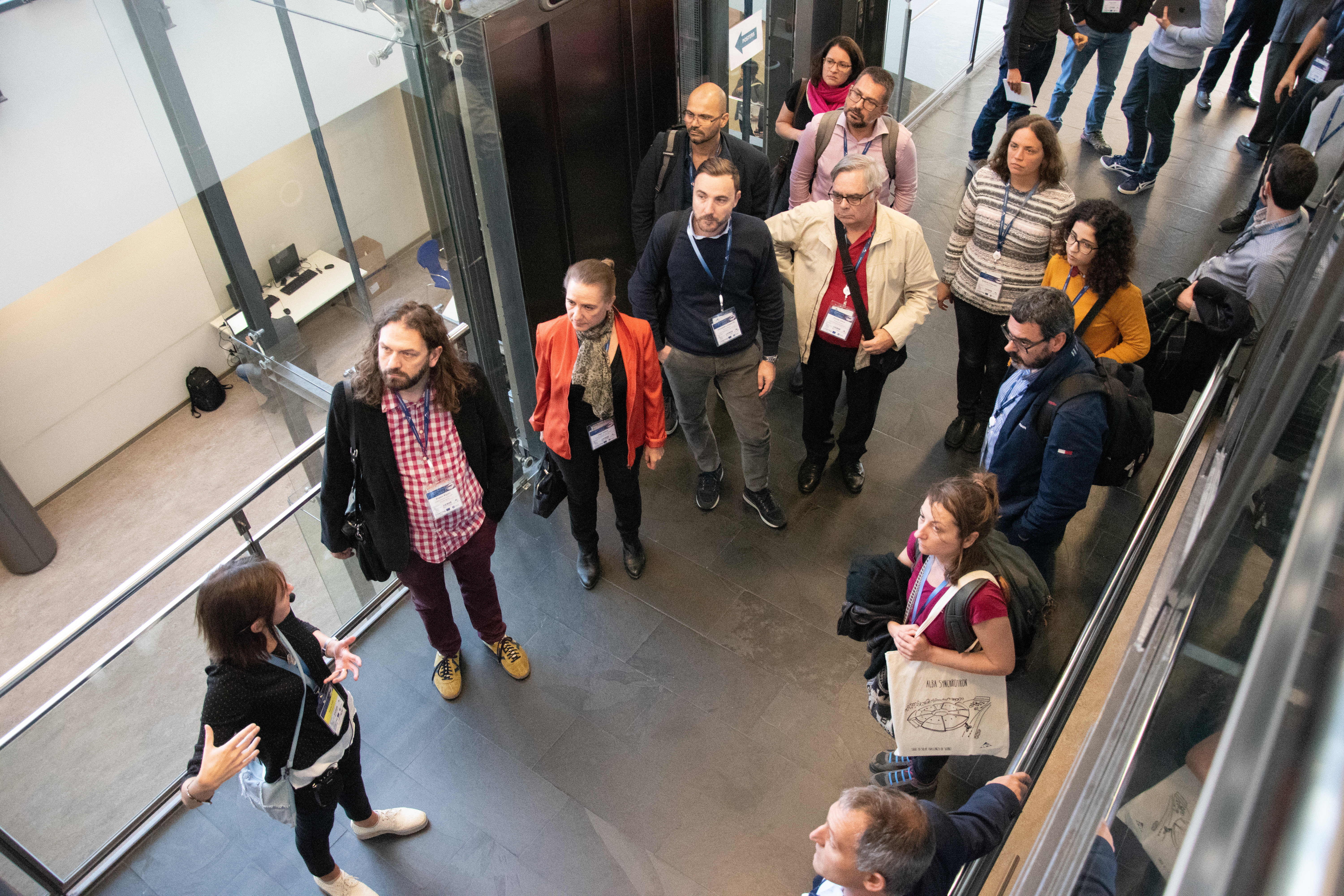ALBA Synchrotron

The event, organised by the ICN2, the ICMAB-CSIC and the ALBA Synchrotron last 24 and 25 October 2019, brought together more than 80 participants from companies and research centres. The event, within the framework of TNSI project, counted with the support of European regional development funds (ERDF) through the Interreg-POCTEFA programme.
The workshop "Innovation applied to Innovation", held at the ALBA premises, was an excellent opportunity to discuss and exchange the latest on technology transfer between more than 80 attendants coming from companies and research institutions.
The event was open by Caterina Biscari, director of ALBA, and Anna Birulés, Minister of Science and Technology during 2000-2002, who stated that "countries who invest in science become rich in intangible assets, and those assets can bring new business opportunities". Clara Barreneche from the Barcelona Institute of Science and Technology (BIST) presented the main figures and trends in innovation, highlighting that there is still a gap between research done in universities or research centres and the market. Beatrice Roy from the University of Toulouse explained how they work since 2017 with researchers and companies in order to establish effective partnerships. Jorge López Reig from CDTI detailed the support given from this institution to promote and boost technology transfer. The morning session finishes with a talk from Xavier Ferràs (professor in ESADE) who analysed the innovation models worldwide. A visit to the ALBA facility was organised for all the participants, followed by the lunch and poster session.
During the afternoon session, Ramon Perisé (research and development chef of Mugaritz restaurant) delivered an inspiring talk where he described the essence and goals of the restaurant and how they have introduced science into their activity. Francisco López, coordinator of TNSI project, gave some insights about its status and activities. Finally an interesting roundtable was organised with the participation of Caterina Biscari, Clara Barreneche, Ramon Perisé, Francisco López and Pablo José Pomposiello from ICN2. During the debate, the role of spin-off companies was present remarking the difficulties they face and the needed involvement from the administrations. It was also commented how institutions doing basic research, like CERN, can incredibly promote the development of new technology and products.
The second day of the workshop was devoted to showcase different examples of technology transfer, done by Spanish and French companies and research and technological centres. Many different high tech products were presented by ISP System, ANTEC, Agilent Technologies, Photon Export, Alivaba Systems, Bihurcrystal, Leitat, Tecnalia, Eurecat, CSIC, Suprasys, AVS Added Value Solutions and ALBA.
The "Trans-Pyrenean Node for Scientific Instrumentation" (TNSI) project, awarded a grant of 1.2 Million Euro, wants to put together SMEs and research centres in the border regions of Spain and France to promote cooperation in R&D&I and technology transfer. To do so, they together develop fundamental and pre-competitive research and perform training for researchers and companies for effective technology transfer. The project is coordinated by BIHURCRYSTAL and its members are: the Institute of Materials Science of Barcelona (ICMAB-CSIC), the Catalan Institute of Nanoscience and Nanotechnology (ICN2), the ALBA Synchrotron, the Institute of Material Sciences of Aragon (ICMA-CSIC), the University of Zaragoza (UNIZAR), the GraPhene NanoTech (GPNT, SME), the Centre of Materials Physics (CFM-CSIC), CEMES (CNRS) and ISP-SYSTEM (SME).





With the collaboration of Fundación Española para la Ciencia y la Tecnología. The ALBA Synchrotron is part of the of the of UCC network from the FECYT and has received support through the FCT-20-15798 project.